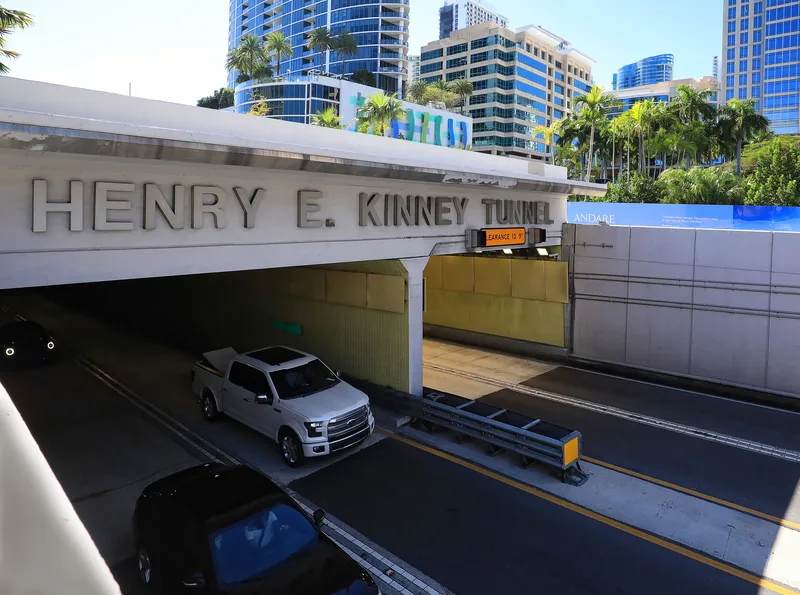After three years, the Compass4D project is to continue its work on co-operative ITS (C-ITS), following the signing of a Memorandum of Understanding by the representatives of the seven European cities of Bordeaux, Copenhagen, Helmond, Newcastle, Thessaloniki, Verona and Vigo.
The consortium and its associated partners have decided to continue operating the C-ITS services, without EU co-funding, for at least one year with the ultimate goal of moving from pilot to large scale deployment for a self-sustaine
October 16, 2015
Read time: 3 mins
After three years, the 7288 Compass4D project is to continue its work on co-operative ITS (C-ITS), following the signing of a Memorandum of Understanding by the representatives of the seven European cities of Bordeaux, Copenhagen, Helmond, Newcastle, Thessaloniki, Verona and Vigo.
The consortium and its associated partners have decided to continue operating the C-ITS services, without EU co-funding, for at least one year with the ultimate goal of moving from pilot to large scale deployment for a self-sustained market.
“After one year of tests and a one year operational phase in both the centre and ring road of Bordeaux, Bordeaux Metropolis and the City of Bordeaux are happy to have participated in the deployment of C-ITS services. Through Compass4D, we installed the first operational pilot of cooperative ITS systems in France which is a great achievement for us. Bordeaux is delighted to continue the experimentation of cooperative systems such as Compass4D and, to supplement them with other use cases” said Ms Nathalie Delattre, Deputy Mayor of Bordeaux.
Compass4D featured as one of the highlights of both the opening and closing ceremonies of the recent ITS World Congress, during which Cees de Wijs, chair of the Supervisory Board of374 ERTICO – ITS Europe, declared “One of the key focus areas that the ERTICO partnership pursues is interoperability. There are plenty of very good tangible results in European projects, but the point is how to replicate these results on a large scale. This is about interoperability and standardisation, but also about finding the right business models to achieve the critical mass needed to boost the market and the ITS industry. We are extremely delighted to see the refreshed momentum in this direction with the launch of the Compass4D initiative.”
Overall, during the three years, Compass4D has installed equipment and implemented and cooperative services on almost 300 roadside units and traffic lights and on more than 600 vehicles, with over 1200 drivers involved in the pilot tests. The implementation process lasted more than one year and required large efforts from the whole consortium. The seven European cities have been actively involved in the Compass4D project with the aim of addressing their challenges and needs in the context of improving traffic management.
Compass4D is co-financed by the European Commission under the CIP - Competitiveness and Innovation Programme and is coordinated by ERTICO - ITS Europe.
The consortium and its associated partners have decided to continue operating the C-ITS services, without EU co-funding, for at least one year with the ultimate goal of moving from pilot to large scale deployment for a self-sustained market.
“After one year of tests and a one year operational phase in both the centre and ring road of Bordeaux, Bordeaux Metropolis and the City of Bordeaux are happy to have participated in the deployment of C-ITS services. Through Compass4D, we installed the first operational pilot of cooperative ITS systems in France which is a great achievement for us. Bordeaux is delighted to continue the experimentation of cooperative systems such as Compass4D and, to supplement them with other use cases” said Ms Nathalie Delattre, Deputy Mayor of Bordeaux.
Compass4D featured as one of the highlights of both the opening and closing ceremonies of the recent ITS World Congress, during which Cees de Wijs, chair of the Supervisory Board of
Overall, during the three years, Compass4D has installed equipment and implemented and cooperative services on almost 300 roadside units and traffic lights and on more than 600 vehicles, with over 1200 drivers involved in the pilot tests. The implementation process lasted more than one year and required large efforts from the whole consortium. The seven European cities have been actively involved in the Compass4D project with the aim of addressing their challenges and needs in the context of improving traffic management.
Compass4D is co-financed by the European Commission under the CIP - Competitiveness and Innovation Programme and is coordinated by ERTICO - ITS Europe.








